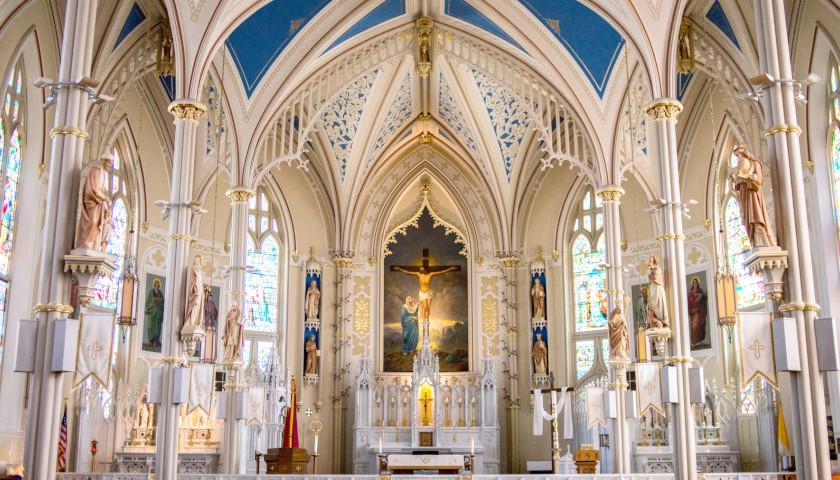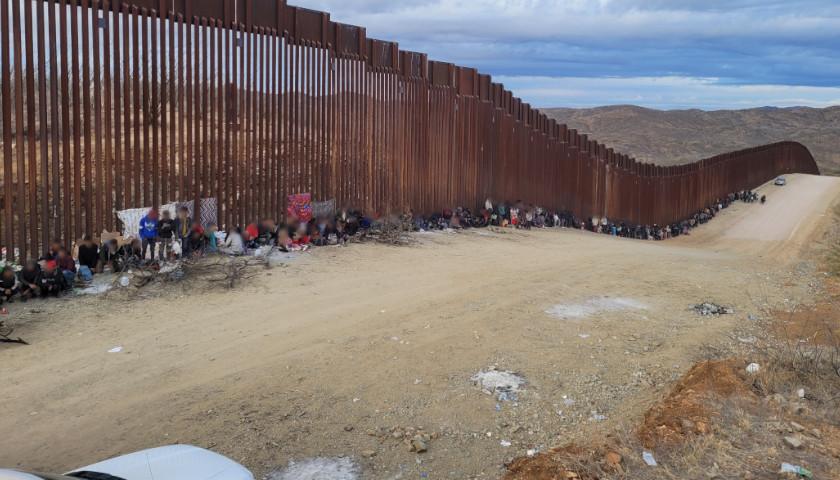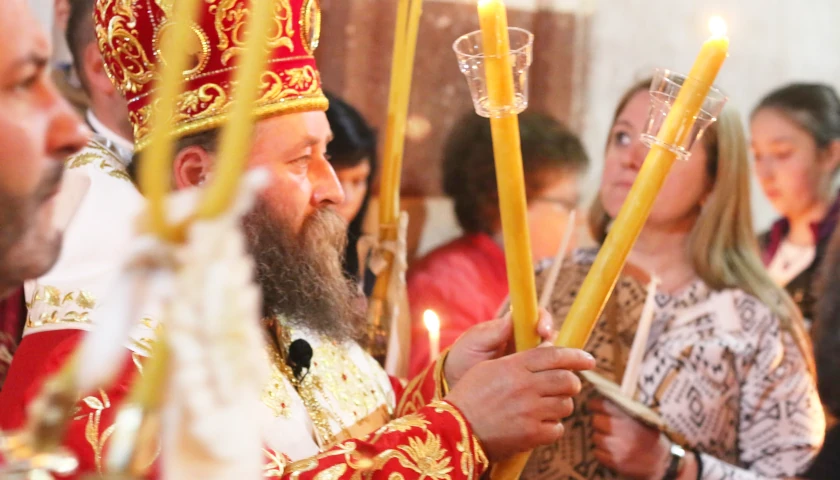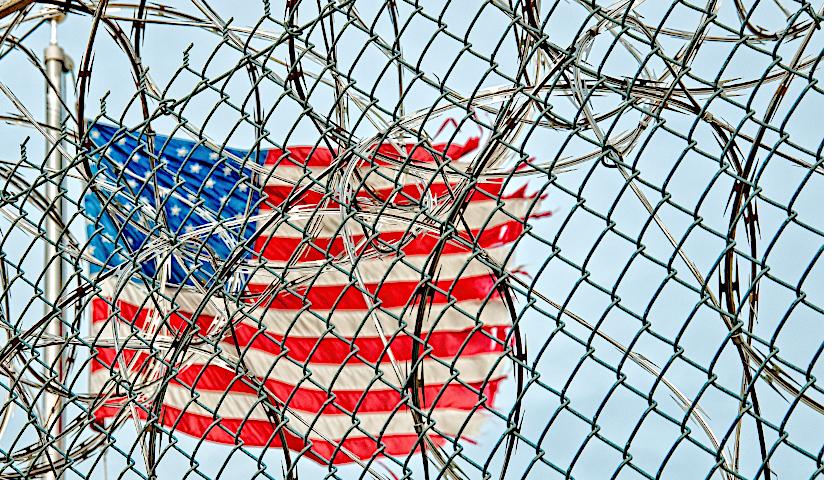by Walker Larson
There’s a grim scene near the end of The Iliad in which the Greek hero Achilles, because of his rage and grief over the death of his comrade Patroclus at the hands of the Trojan prince Hector, slays Hector in battle and drags his corpse behind his chariot, day after day, desecrating the body in a manner unthinkable to the ancient Greeks. In fact, the affront to the dignity of this hero and prince, as well as the violation of the sacred customs of Greek society, eventually compels the gods to intervene. They tell Priam, the elderly king of Troy, to go to Achilles and plead for the body of Hector so that it may be properly honored and buried. The gods will not allow such a desecration to continue.
In these final lines of this epic poem—which, along with The Odyssey forms the bedrock of Western literature and arguably Western Civilization as a whole—Homer reaffirms a notion that all Greeks would have agreed with: There are certain lines that must not be crossed, certain sacred realities that cannot be defied, even by the semidivine hero Achilles.
I offer this example to illustrate the point that certain concepts and customs—even those that were not, strictly speaking, religious—were (more or less) universally respected in the ancient Greek world. Another instance would be the Greek notion of xenia, which was the sacred obligation of hospitality to strangers and the important customs that bound guests and hosts together.
In Homeric poetry, those who violated these laws of hospitality—such as did the cyclops Polyphemus or the brash young suitors of Odysseus’s wife, Penelope, on Ithaca—suffered brutal punishments as a consequence. Homer constantly insists on the importance of certain traditions that humanity must respect, including honoring the dead and welcoming guests into one’s home.
What the Greeks and most civilizations throughout history possessed was a sense of the sacred, even if it was sometimes ill-defined or even erroneous. The word sacred derives from the Latin sacrare, which means “to set apart.” Something sacred is set apart from common, or profane, use (from the Latin pro fanum, “outside the temple”). It rises above the everyday and the ordinary, forming a bridge between common human existence and the transcendent.
Such a sense of the sacred is predicated on the recognition of realities higher than the individual self and to which the self must submit, at least from time to time, whether that be ideals of justice, the nobility of virtue, the importance of human dignity, the respect owed the state, or the reverence due to the gods. Different cultures have, of course, prized different ideals and held as sacred various customs.
What is unusual, even pathological, I would suggest, is for a culture to have no sacred customs at all. And yet, more and more, I see this happening in America. For what do all Americans hold as sacred? What do we consider untouchable, inviolable?
We might once have said things like our flag or our anthem, but that is no longer universally respected, as evidenced by the “take a knee” phenomenon. Our national heroes and their legacy, maybe? No more—the memory of our forefathers has been intentionally tainted by educational programs like Critical Race Theory and their monuments defaced and even pulled down. What about our famous American individualism and respect for the rights of the individual? Only if you are part of a designated victim group. A Christian heritage and Christian morals, then? Please. The fastest growing religious affiliation in the United States as of 2021 is “none.”
But perhaps worse than the outright rage-filled attacks on the sacred (like the tearing down of monuments) is the banality and crassness that characterizes so much of pop culture. There is a madness of mundanity about us. Nothing is all that serious to us, it seems. Nothing is above being joked about. Crudeness and foul language (“profanities”) characterize much of our speech.
I think for many Americans it’s not a case of willfully and giddily de-reverencing sacred realities; more often, the possibility of the sacred has never really occurred to them, steeped as they are in scientific secularism. Many of us are simply adrift in a sea of materialist consumerism and instant gratification, with the glare of electronic devices reflected in our empty eyes.
All this is the fruit of a predominating postmodern philosophy, insidiously infused with skepticism, nihilism, and materialism. To take the case of materialism, for example: If that philosophy is true, then nothing is to be reverenced, for nothing is actually any different from anything else. Nothing is “set apart.” Everything is composed of the same atoms. Why honor the body of a fallen warrior? Chemically speaking, it’s the same as any body. It decomposes the same way as roadkill does.
Moreover, from a materialist standpoint, all of our concepts of high ideals—love, justice, sacrifice, and courage, for example—are merely the accidental consequences of blind chemical reactions in our brains. They have no intrinsic or transcendent meaning, so what is there to reverence about them?
In addition to being born of a recognition of realities beyond mere matter, a sense of the sacred is born ultimately of a sense of humility. For all their pagan ignorance, the Greeks recognized the existence of realities above the whims of an individual human being, forces more powerful than the will of man. For Homer, man was not the ultimate lord of the universe. Homer knew through his poetic intuition that there were higher powers and higher realities than the everyday life of the herdsman, the sailor, or even the king. To have a sense of the sacred, one must be prepared to accept the existence of something beyond and greater than the self.
I think it is precisely this sense of humility that we are losing through the arrogance of our scientific and materialist ruling paradigm. The attitude of humility and wonder is also not fostered by the narcissism, hedonism, and consumerism that characterizes our culture more and more. The Greeks had a word for that as well: hubris, the pride that “goeth before destruction,” as the biblical writer phrased it.
All of this demands that we ask: If a culture is defined by those values and customs it considers untouchable and nonnegotiable—sacred—then who are we as Americans in the 21st century? And can a society that has lost its sense of the sacred endure?
– – –
Walker Larson teaches literature at a private academy in Wisconsin. He is the author of two novels, Hologram and Song of Spheres. When not in the classroom or spending time with family and friends, he blogs about literature and education on his Substack The Hazelnut.






If I may: the militancy of the “secular humanists,” who despite their minority status are far more aggressive than those of us who hold to a religion, is at the base of the phenomenon. Many ardent Christians have decided to go silent rather than to have to face the invective — often laced with sarcastic intimations of intellectual superiority — of the secularists. Note how successful the secularists have been at ejecting the sacred, in its many forms, from public life — even to the extent of making it somehow shameful for a popular athlete or entertainer to express his religious convictions in public! Militancy and aggression have power even when wielded by a minority.